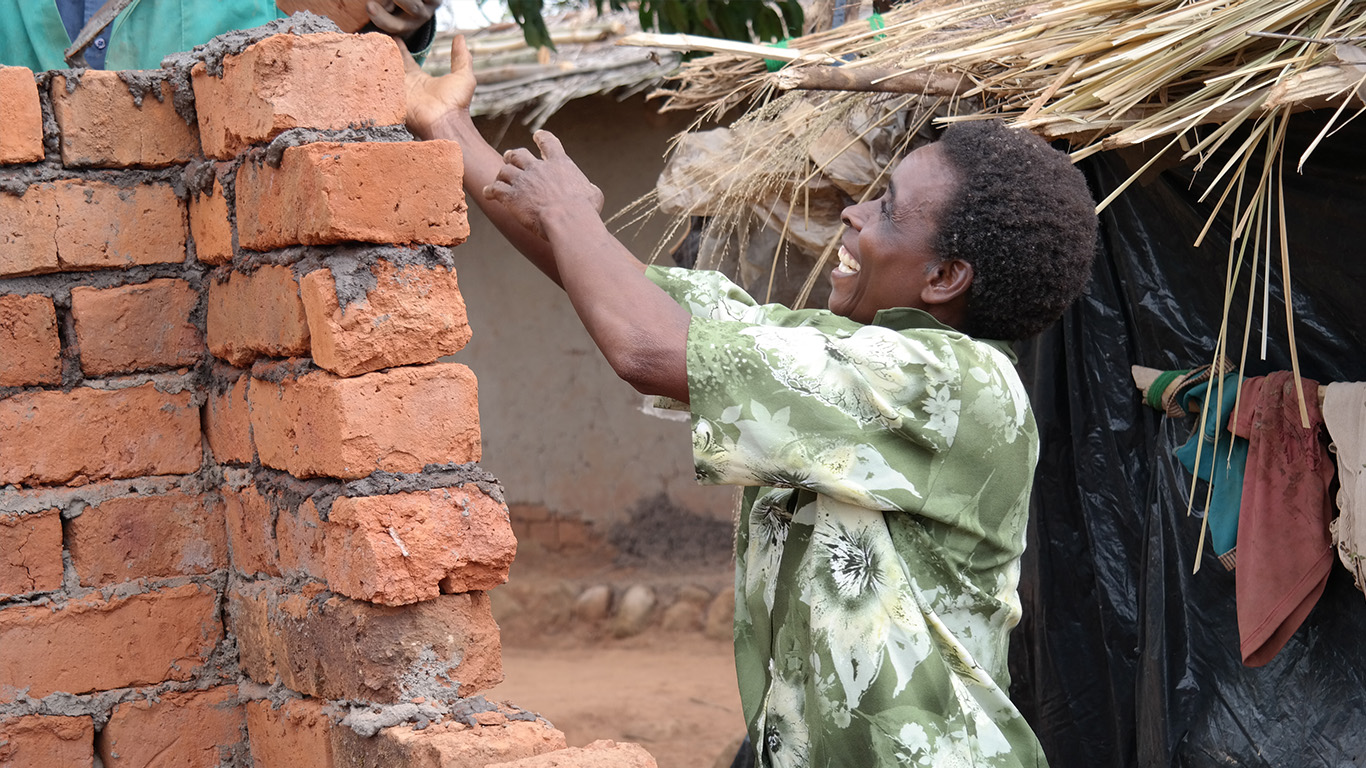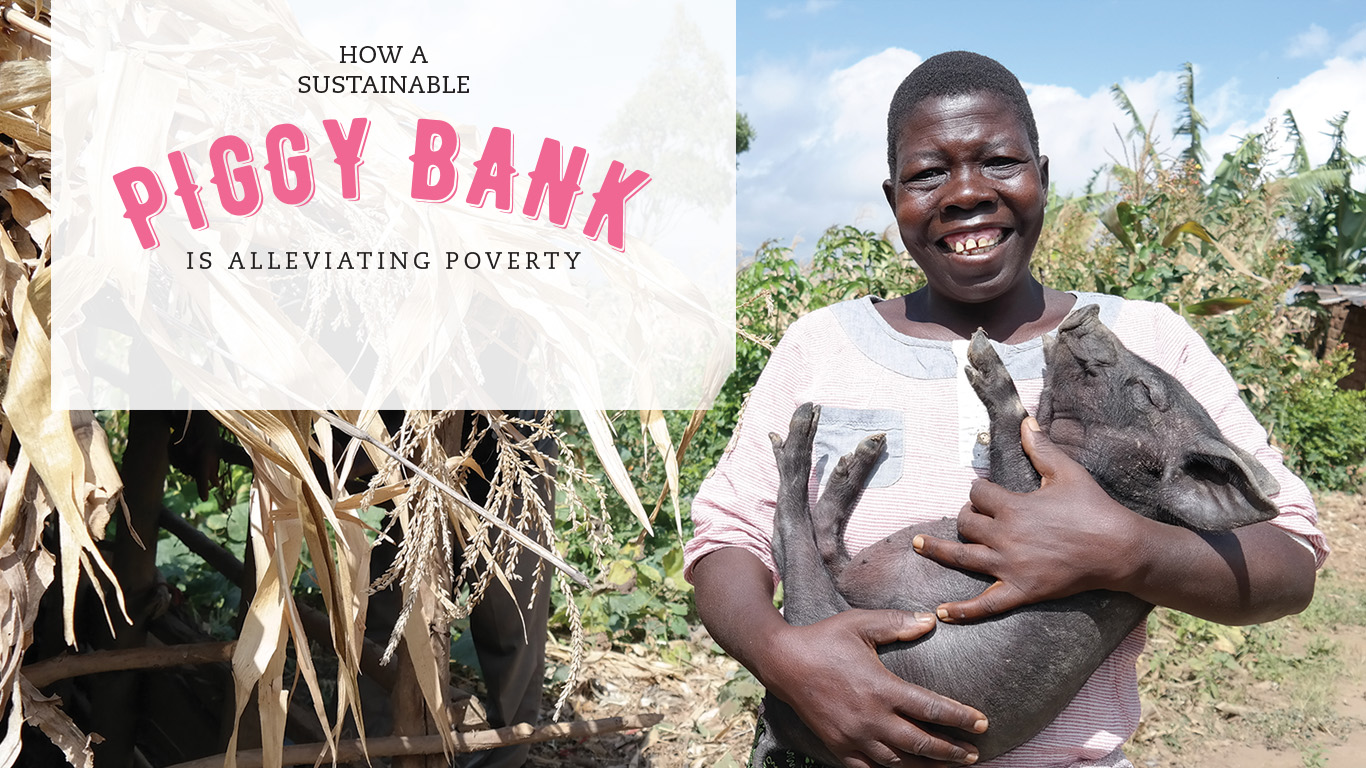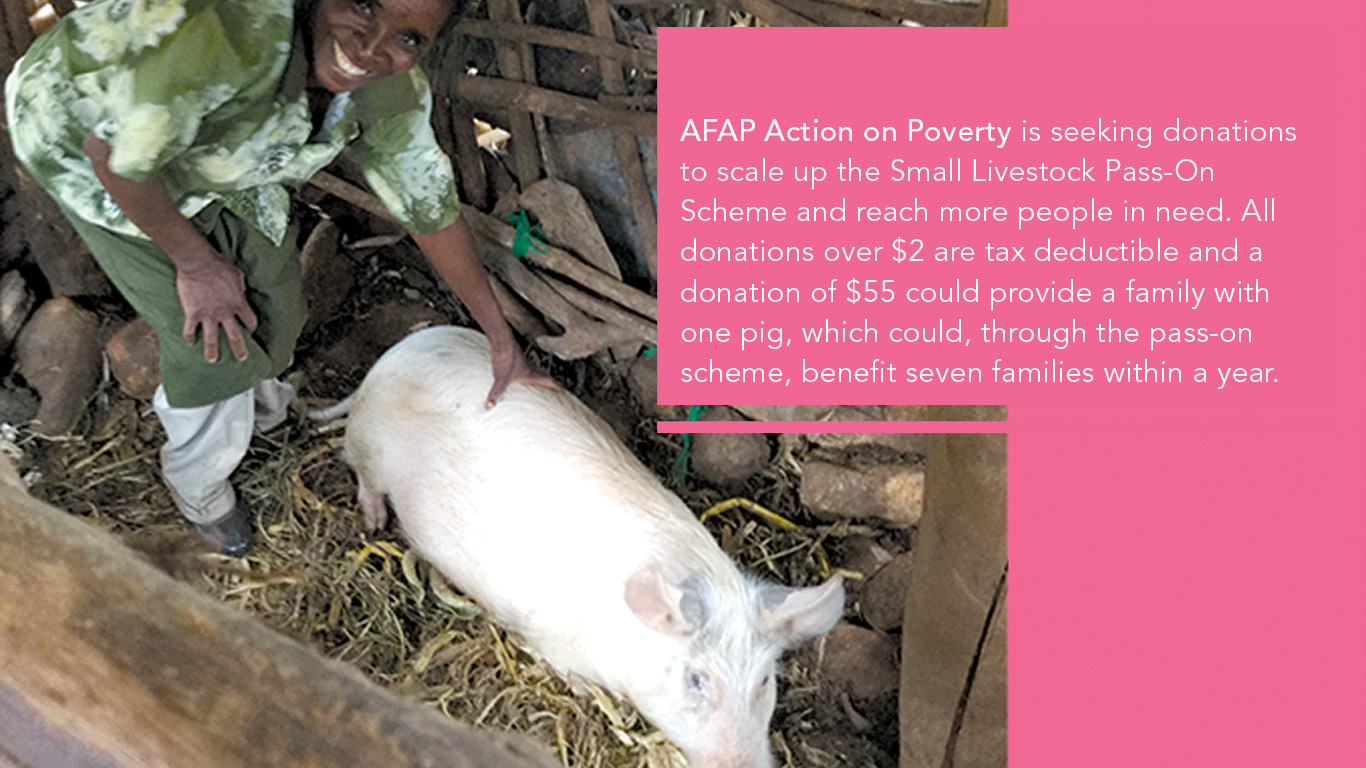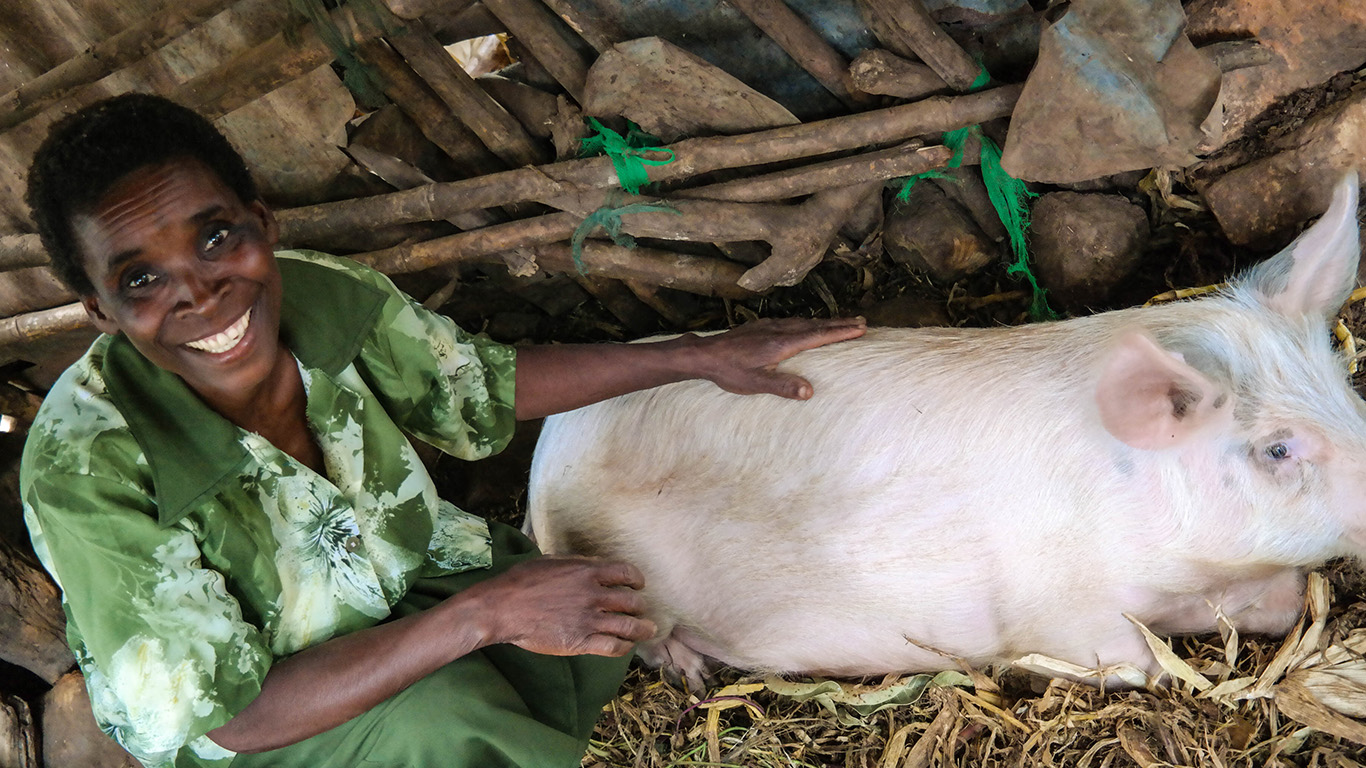Pigs are making a big impact in helping poor and vulnerable families in the small southeastern African nation of Malawi to make a living for themselves, says Australian NGO AFAP Action on Poverty.
The small Sydney-based international aid agency has seen impressive results through its Small Livestock Pass-on Scheme, which is helping hundreds of people to improve their lives.
“It’s a simple idea. First we go out into poor rural communities and call for people who want to sign up for the scheme. Priority goes to those who are particularly vulnerable such as single mothers, people with a disability or people who are HIV positive,” said AFAP Action on Poverty Executive Director Christine Murphy.
“We give one of those families a female pig and we teach them about livestock management, pig pen construction and marketing. The pig is mated and when it sows, the family repays the scheme with two piglets and keeps the rest.
“Those piglets are then ‘passed-on’ to two other families in need, who each in return pay back the scheme with two piglets. Then four new families benefit – and so the scheme grows. It’s a sustainable piggy bank,” she said.
Families are generating their own incomes through small-scale pig farming, selling piglets to markets and hiring out boars to stud. They are also using the manure as fertiliser for their crops, which is increasing their yields.
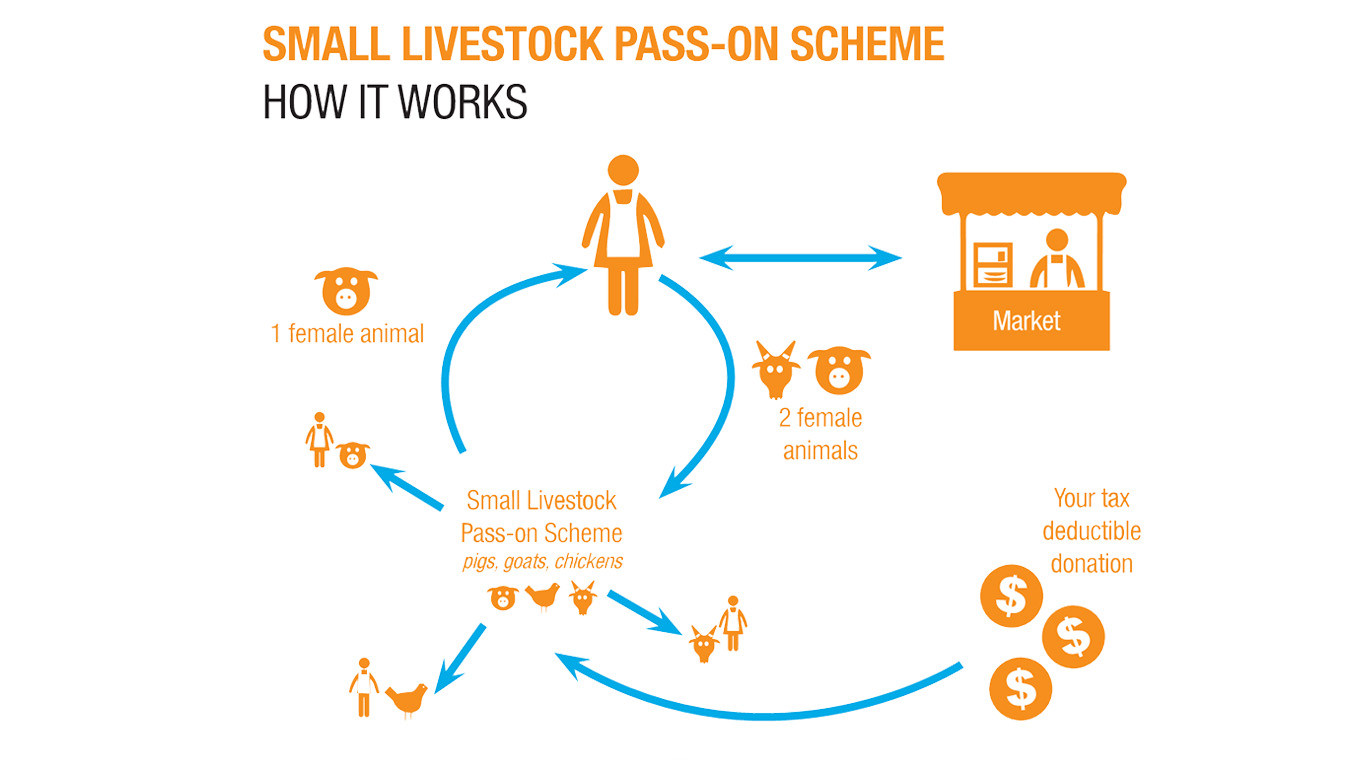
AFAP Action on Poverty Communications Manager, Tiffiny Kellar, returned from a recent field visit to Malawi where she met many families who were reaping the benefits from the Small Livestock Pass-On Scheme.
“One person who stood out was a single mother named Mary,” said Ms Kellar. “The 48 year-old woman lives in a tiny rural village on ancestral lands near tea estates in Thyolo, Malawi.
“She was chosen for the scheme in May 2012 because she had a child with a disability and was recently widowed. She was the sole breadwinner for her five children and was struggling to feed her family.
“When I met her, she had the biggest smile and told me how proud she was to be earning a decent income from her piggery.
Mary had her first litter four months after receiving the pig, which gave her six piglets. She repaid the scheme back with two piglets and sold the rest. She used the income to buy food and iron sheets for the roof of her house.
The second sow gave Mary 10 piglets. She sold eight to market and kept a male pig that she is hiring out to her neighbours as a stud – providing her with additional income.
Mary feeds the pigs maize husks, which she buys using the small income she earns through working on the local tea estate.
“When I visited Mary she had builders constructing a modest, brick home for her family to live in. She was also able to buy blankets and pay for her children’s school fees.
“She was lucky not to have had any problem with disease with her pigs, but the scheme has a veterinarian to ensure the ongoing health of the pigs.
“The NDY Charitable Trust recently donated $1000 to our charity and this equates to 18 piglets. As pigs reproduce quickly, this donation could create livelihoods for as many as 126 families in just over a year. That is over 600 people who will be better fed, have access to education and will be able to afford health care when they need it.
“What’s really powerful about this program is that it’s giving people the means to make their own living, rather than just providing handouts. Mary has taught her children how to pig farm so it will help her family for generations to come,” said Ms Kellar.
AFAP Action on Poverty is seeking donations to scale up the Small Livestock Pass-On Scheme and reach more people in need. All donations over $2 are tax deductible and a donation of $55 could provide a family with one pig, which could, through the pass-on scheme, benefit seven families within a year. Donate today at www.afap.org/donate
